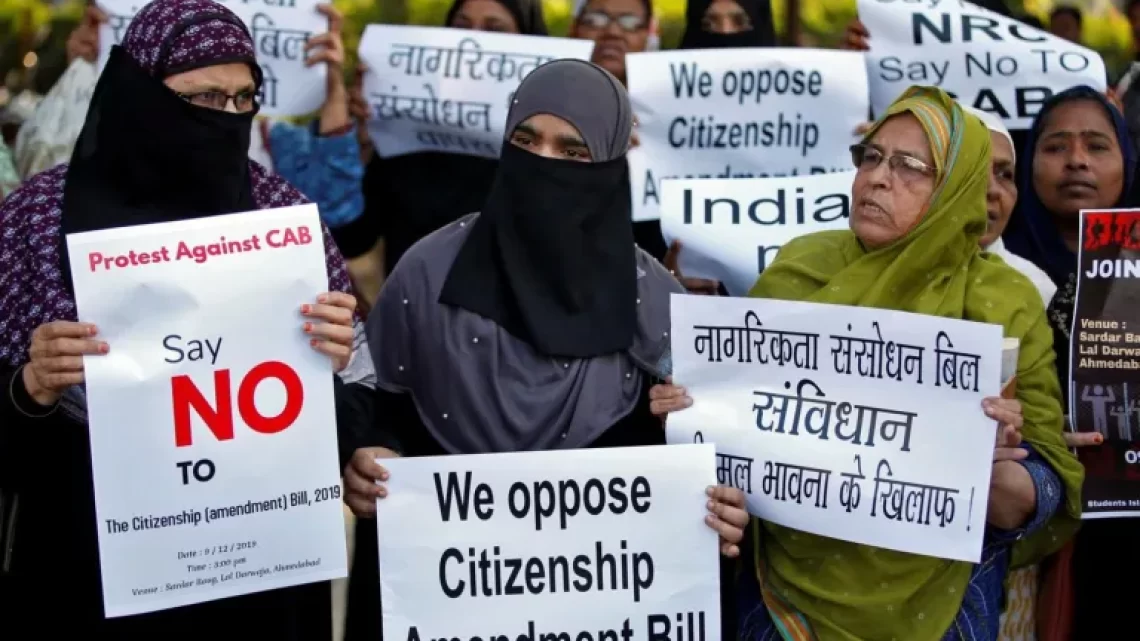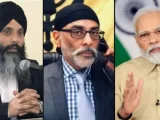
India’s Controversial Citizenship Law Resurfaces as Government Announces Implementation
March 12, 2024The Indian government’s decision to enforce the Citizenship Amendment Act (CAA) of 2019, excluding Muslims, has reignited concerns and stirred fresh debates on the country’s commitment to secularism. This move comes just weeks before Prime Minister Narendra Modi, known for his Hindu nationalist stance, seeks a third term in office.
The CAA expedites the naturalization process for Hindus, Parsis, Sikhs, Buddhists, Jains, and Christians who fled to India from Afghanistan, Bangladesh, and Pakistan before December 31, 2014. Notably, the law excludes Muslims, who constitute a majority in all three nations. Although the legislation was ratified by the Indian Parliament in 2019, its implementation was delayed by Modi’s government due to violent protests in the capital, New Delhi, and other parts of the country, where scores of people lost their lives during clashes.
The 2019 nationwide protests attracted individuals from diverse faiths who argued that the CAA undermines India’s foundational principles as a secular nation. Of particular concern for Muslims was the fear that the government could potentially exploit the law, when combined with a proposed National Register of Citizens (NRC), to marginalize them.
The NRC is a component of the Bharatiya Janata Party (BJP)-led government’s broader strategy to identify and expel individuals it alleges entered India illegally. While the NRC has only been implemented in the northeastern state of Assam so far, the ruling BJP has expressed its commitment to expanding a similar citizenship verification program nationwide.
The resurfacing of the CAA implementation raises questions about the government’s priorities and the potential impact on the country’s social fabric. Critics argue that the law not only discriminates against Muslims but also challenges the idea of India as a secular and inclusive nation. The 2019 protests reflected the widespread belief that the CAA, coupled with the NRC, could be used to target marginalized communities, particularly Muslims, leading to their exclusion from the socio-political landscape.
Modi’s government faces a delicate balancing act as it navigates the complex terrain of religion, citizenship, and national identity. The decision to enforce the CAA at this juncture, just before Modi seeks re-election, suggests a strategic move to consolidate support from the Hindu majority. However, it also risks exacerbating tensions and further polarizing the diverse Indian population.
As the government proceeds with the implementation of the CAA, the world watches closely, scrutinizing India’s commitment to its secular ideals and the potential consequences for minority communities. The debates surrounding the CAA and NRC continue to shape the narrative of India’s democratic values and its ability to accommodate diverse religious and cultural identities.

